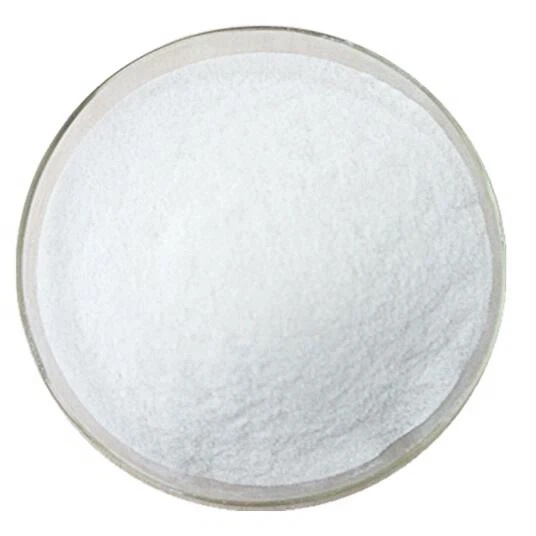CLA Conjugated Linoleic Acid Powder
Product description
Conjugated Linoleic Acid (CLA) is a group of fatty acids found primarily in animal products, particularly meat and dairy, from ruminant animals like cows and sheep. CLA is a polyunsaturated fatty acid that is considered beneficial for human health due to its unique chemical structure and the way it interacts with the body. Conjugated linoleic acid powder is a powdered form of this compound, often used as a supplement to help with various health goals, including weight management, fat loss, and immune function.
What is Conjugated Linoleic Acid (CLA) Powder?
CLA is a naturally occurring fat found in dairy products, grass-fed meat, and certain processed oils. The term “conjugated” refers to the arrangement of double bonds in the fatty acid chain. These bonds give CLA its unique properties. The powder form of CLA is made by concentrating this fatty acid from natural sources, and it is commonly available in dietary supplements, often in combination with other nutrients to enhance its absorption and effectiveness.
Importance of CLA as a Supplement:
CLA is particularly notable for its potential metabolic benefits, including its role in fat metabolism, increasing lean muscle mass, and improving overall body composition. It is most widely used for its fat-burning properties, but it also offers a range of other health benefits.
Benefits of Conjugated Linoleic Acid Powder as a Supplement:
Supports Fat Loss and Weight Management: One of the most popular uses of CLA is to support weight loss and fat reduction. Several studies suggest that CLA can help reduce body fat by increasing the rate of fat oxidation (the breakdown of fat for energy). CLA is believed to help reduce fat storage by modifying the enzyme activity involved in fat metabolism, promoting fat burning and preventing the storage of fat in adipose tissue. It may also help preserve lean muscle mass, making it a popular supplement for those trying to lose fat while maintaining muscle.
Improves Body Composition: CLA supplementation has been shown to improve body composition, which is the proportion of lean mass (muscles, bones, organs) to fat. Some studies have found that CLA can increase lean body mass and decrease body fat, contributing to a more toned, athletic appearance. This effect makes CLA particularly attractive to individuals engaged in strength training or bodybuilding.
Supports Cardiovascular Health: CLA has potential benefits for heart health. Some research suggests that it may help improve blood lipid profiles by reducing levels of bad cholesterol (LDL) and increasing good cholesterol (HDL). It can also lower triglyceride levels, contributing to a healthier cardiovascular system. By improving cholesterol balance and reducing fat buildup in arteries, CLA can support overall cardiovascular function and may lower the risk of heart disease.
Improves Insulin Sensitivity: CLA has been shown to enhance insulin sensitivity, which is important for blood sugar control and preventing type 2 diabetes. By improving the body’s ability to respond to insulin, CLA may help regulate blood glucose levels and reduce insulin resistance, especially in people who are overweight or have metabolic syndrome. This makes CLA an important supplement for individuals at risk for diabetes.
Boosts Immune Function: CLA also has immune-boosting properties. It has been shown to enhance the function of immune cells, particularly T-cells and macrophages, which play a crucial role in fighting infections and inflammation. Some research suggests that CLA may help reduce chronic inflammation, which is associated with a variety of health conditions, including autoimmune disorders, cardiovascular diseases, and even cancer.
Supports Healthy Skin: Due to its anti-inflammatory properties, CLA has been used in some skincare treatments to help improve the appearance of the skin. It may assist in reducing skin inflammation, prevent acne, and help improve skin elasticity and firmness. Some studies have suggested that CLA may also reduce the appearance of stretch marks by supporting collagen production.
May Improve Bone Health: CLA may support bone health by stimulating the production of bone-forming cells (osteoblasts). Some animal studies have shown that CLA supplementation can increase bone mineral density and promote bone growth. This is particularly important for individuals who are at risk of osteoporosis or other bone-related issues.
May Reduce Cancer Risk: Preliminary research suggests that CLA may have potential anticancer properties. Some studies have indicated that CLA can inhibit the growth of certain types of cancer cells, particularly breast cancer and colon cancer. While more research is needed to fully understand the impact of CLA on cancer prevention, its antioxidant and anti-inflammatory effects may play a role in reducing the risk of cancer development.
Supports Fatty Liver Health: CLA may help protect against fatty liver disease by improving liver function and reducing the buildup of fat in the liver. Some studies have suggested that CLA supplementation can decrease liver fat accumulation, improve liver enzyme levels, and reduce inflammation associated with liver disease.
Increased Exercise Performance: CLA supplementation may enhance exercise performance by improving energy metabolism and supporting muscle growth. CLA can potentially increase endurance and strength, which can be beneficial for athletes or anyone engaging in regular physical activity. This effect is linked to its ability to increase lean muscle mass while promoting fat loss.
How to Take CLA Powder:
CLA powder can be taken in capsules, tablets, or loose powder form. The typical dosage for CLA supplementation varies but generally ranges from 1,000 mg to 3,000 mg per day. It is often divided into two or three doses throughout the day with meals. The powder form can be mixed into smoothies, shakes, or other beverages for easy consumption.
Considerations:
Side Effects: CLA is generally considered safe when taken in recommended amounts. However, some individuals may experience mild gastrointestinal issues such as diarrhea, nausea, or stomach discomfort. It is important to start with a lower dose to assess tolerance.
Interactions with Medications: CLA may interact with medications that affect blood sugar or blood pressure, so people taking these types of medications should consult a healthcare provider before using CLA supplements.
Pregnancy and Breastfeeding: Due to limited research on the safety of CLA during pregnancy and breastfeeding, it is recommended that pregnant or breastfeeding women avoid CLA supplementation unless advised by a healthcare professional.


